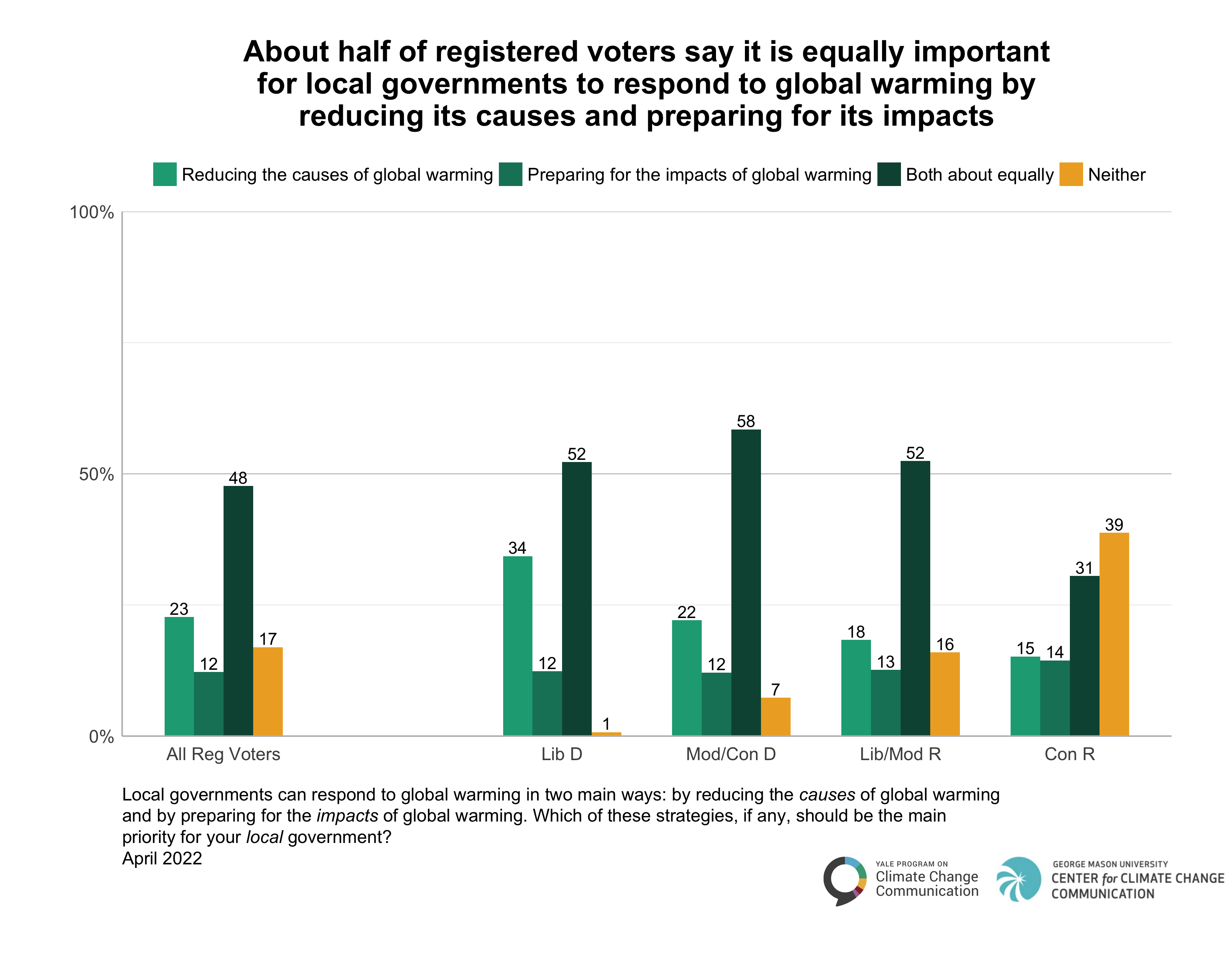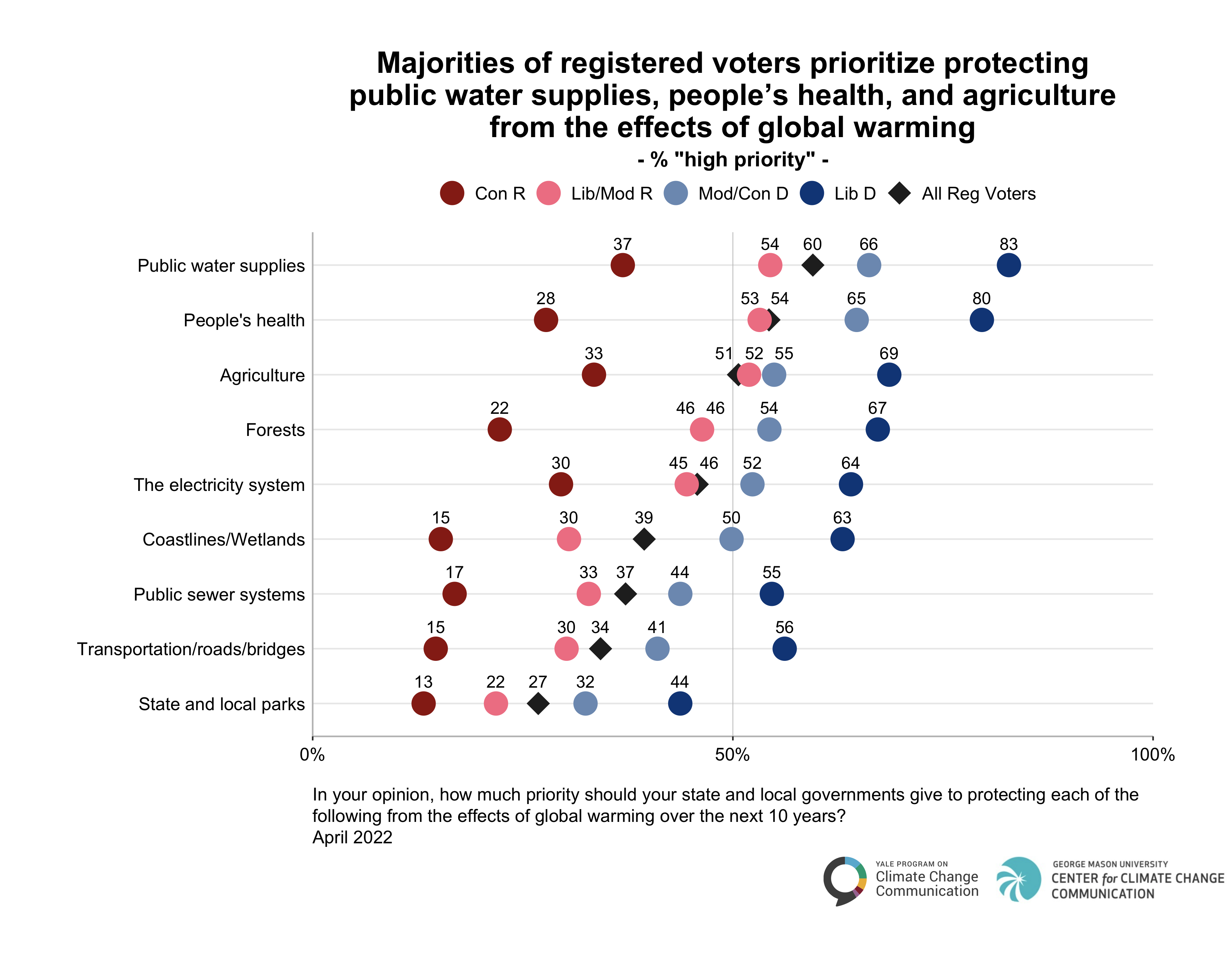Report · Jul 7, 2022
Politics & Global Warming, April 2022
By Anthony Leiserowitz, Edward Maibach, Seth Rosenthal, John Kotcher, Jennifer Carman, Liz Neyens, Teresa Myers, Matthew Goldberg, Eryn Campbell, Karine Lacroix and Jennifer Marlon
Filed under: Policy & Politics and Behaviors & Actions
6. State and Local Government Action on Global Warming
6.1. About half of registered voters say it is equally important for local governments to respond to global warming by reducing its causes and preparing for its impacts.
About half of registered voters (48%) say their local government should prioritize both climate change mitigation (reducing the causes of global warming) and adaptation (preparing for the impacts of global warming) about equally, with an additional 23% saying the main priority should be mitigation, and 12% saying it should be adaptation. Seventeen percent of registered voters (including 39% of conservative Republicans) say their local government should not prioritize either of these approaches.
6.2. Large majorities of registered voters support climate-friendly policies for their local community.
Across the political spectrum, large majorities of registered voters support climate-friendly policies for their local community, including increasing the availability of public transportation in their county (83%), providing funding to help homeowners make energy-efficient improvements to their homes (82%), and constructing bike paths and installing bike lanes (77%).
6.3. Majorities of registered voters prioritize protecting public water supplies, people’s health, and agriculture from the effects of global warming.
Half or more registered voters think their state and local governments should place a “high priority” on protecting public water supplies (60%), people’s health (54%), and agriculture (51%) from the effects of global warming over the next ten years.
More than four in ten think a high priority should be placed on protecting forests (46%) and the electricity system (46%).


